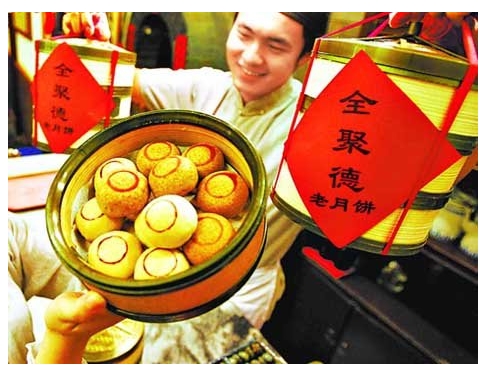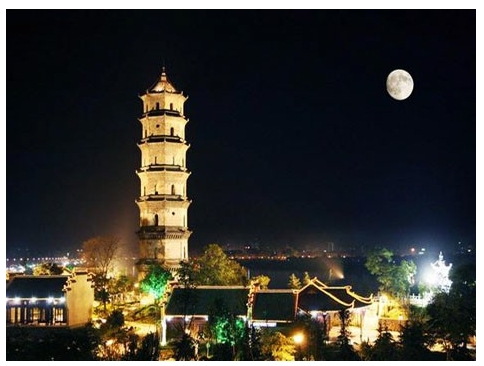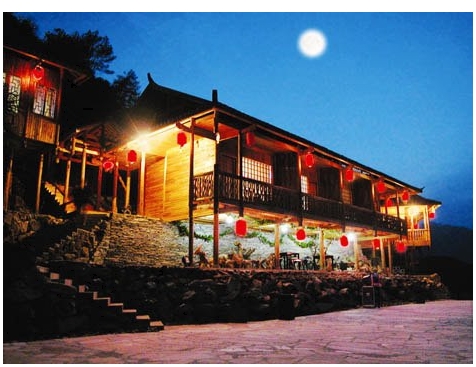
The 15th day of every 8th lunar month is the traditional Chinese Mid-Autumn Festival. It is the most important festival after the Chinese Lunar New Year. The moon on the night of the 15th day of lunar August is believed to be fuller and brighter than in other months. A full moon is a symbol of togetherness. As such, the Mid-Autumn Festival is a time for family reunion. It's also called "Reunion Festival". Those unable to get home to join the get-together miss their family even more on the festival.

The origin of the Mid-Autumn Festival derived from the tradition of worshipping the Goddess of Moon. The festival is also a time to celebrate a good autumn harvest. It dates back thousands of years and the modern-day festive customs were gradually formed over the years. Generally speaking, eating moon cakes, enjoying the moon and lighting up lanterns are common traditions on the festival.
In addition, various parts of the country and all ethnic minorities have different Mid-Autumn Festival customs. In Nanjing, the festival coincides with the blooming season of sweet-scented osmanthus flowers. Local people like to pick fresh osmanthus flowers for delicious food preparing. They traditionally eat osmanthus flower ducks and drink the flower juice. In Zhejiang, the Mid-Autumn Festival is an ideal time for tide watching. Fire dragon dances are usually performed in Hong Kong on the festival and people in Anhui do a game called "pagoda building" and the Dai ethnic people pay tribute to the moon and the Gaoshan ethic people usually perform ball-holding dance. All these interesting customs are an indication of people's love of life and good wishes for a better future. There are lots of Chinese legends about the moon. The story of Goddess Chang'e, Wu Gang and the Jade Rabbit living on the moon is still popular today. There have been numerous poems about the Mid-Autumn Festival since ancient times, the most famous piece being Shui Diao Ge Tou by the Northern Song Dynasty poet Su Dongpo. Although he lamented by writing "Men have sorrow and joy, they part or meet again; the moon may be bright or dim, she may wax or wane. There has been nothing perfect since the olden days", he also expressed his wishes by writing "So let us wish that man will live long as he can; though miles apart, we'll share the beauty she displays.", reflecting how much those far away from home would like to reunite with their families and how deeply they missed their hometowns.





